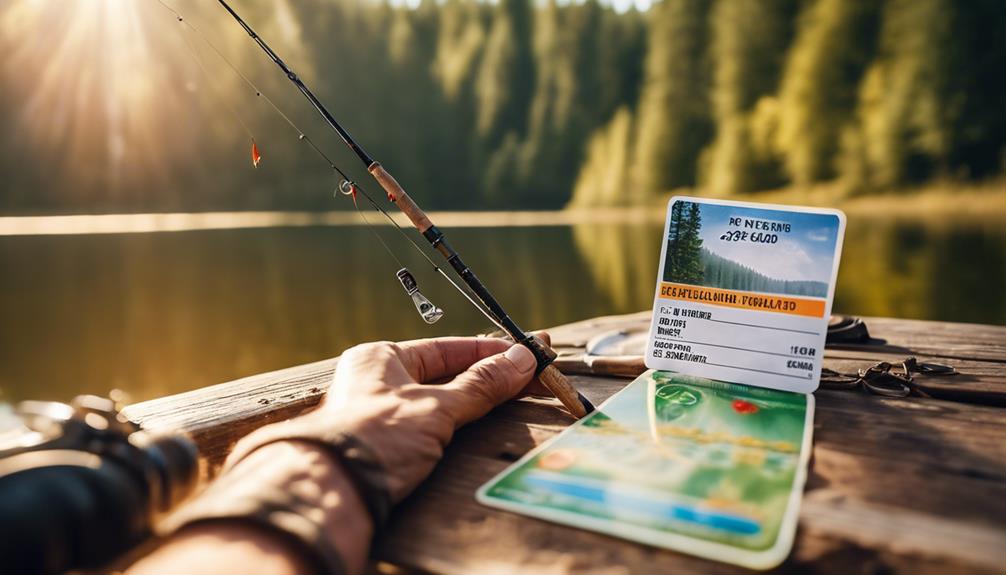Fishing is one of the most popular outdoor activities enjoyed by millions of people around the world. Whether you’re casting a line in a serene freshwater lake or battling the waves in the ocean, fishing can offer relaxation, excitement, and a chance to connect with nature. However, before you grab your gear and head to your favorite fishing spot, it’s essential to know when you have to get a fishing license. This guide will help you navigate the regulations surrounding fishing licenses and ensure you’re compliant with local laws.
Understanding the Importance of a Fishing License
Before diving into the specifics of when you need to obtain a fishing license, it’s important to understand why licenses are necessary. Fishing licenses are required primarily for conservation purposes. They help regulate fish populations, maintain healthy ecosystems, and fund conservation initiatives. By purchasing a fishing license, you contribute to local wildlife management and ensure that fishing remains a sustainable activity for future generations.
When Do You Need a Fishing License?
The requirement for a fishing license varies depending on several factors, including your location, age, and the type of fishing you plan to do. Generally, you need a fishing license if you are over a certain age (often 16 or 18 years old) and plan to fish in public waters. It’s crucial to check the specific regulations in your state or country, as laws can differ widely. Most states require licenses for freshwater fishing, saltwater fishing, and in some cases, even ice fishing.
Types of Fishing Licenses Available
When considering when you have to get a fishing license, it’s also important to understand the different types of fishing licenses available. Most jurisdictions offer various options, including annual licenses, short-term licenses (daily, weekly, or monthly), and special licenses for specific types of fishing (such as saltwater or trout fishing). Additionally, some states offer discounted licenses for seniors, veterans, and children. Be sure to choose the license that best fits your fishing habits to ensure you remain compliant with the law.
Special Circumstances: Exemptions and Free Fishing Days
In some cases, you may not need to get a fishing license. Many states offer exemptions for certain groups, including children under a specific age, disabled individuals, or active military members. Additionally, many jurisdictions host “Free Fishing Days,” during which residents can fish without a license. These days are typically held during the summer months to encourage people to try fishing without any barriers. Always check with your local wildlife agency to learn about any exemptions or special days that may apply to you.
How to Obtain a Fishing License
Once you’ve determined that you need a fishing license, the next step is to obtain one. Most states offer multiple ways to acquire a fishing license, including online applications, in-person purchases at designated locations (like bait shops or outdoor retailers), and mail-in applications. The online route is often the most convenient, allowing you to quickly fill out the necessary information and pay using a credit or debit card. Make sure to have your identification and any required information handy when applying for your license.
Understanding Fishing License Regulations
After you get your fishing license, it’s important to familiarize yourself with the regulations that accompany it. Each state has specific rules regarding fishing seasons, catch limits, and designated fishing areas. For example, some species may have specific size or bag limits that you must adhere to. Violating these rules can result in fines or the revocation of your fishing license. To avoid any issues, review the regulations provided by your local wildlife agency and ensure that you stay informed about any changes.
The Consequences of Fishing Without a License
Fishing without a valid license can lead to serious consequences. Penalties for fishing without a license vary depending on the jurisdiction but can include hefty fines, confiscation of fishing equipment, and potential criminal charges. In some cases, you may also face restrictions on future fishing activities. To avoid these penalties, always ensure you have the necessary licenses before heading out to fish.
Final Thoughts: Stay Informed and Compliant
In conclusion, knowing when you have to get a fishing license is essential for anyone looking to fish legally and responsibly. Fishing licenses are not just a legal requirement; they play a crucial role in conserving fish populations and maintaining healthy ecosystems. By understanding the types of licenses available, any exemptions that may apply, and the regulations governing fishing in your area, you can enjoy your fishing experience without worry. Always check with your local wildlife agency for the most current information and ensure that you’re doing your part to protect our natural resources.
With this guide, you should now feel empowered to navigate the world of fishing licenses and enjoy your time on the water! Happy fishing!
